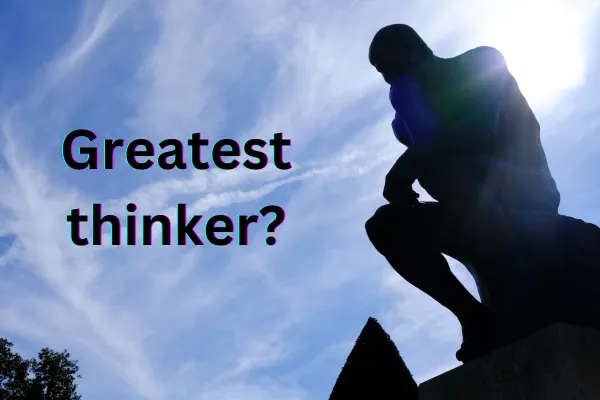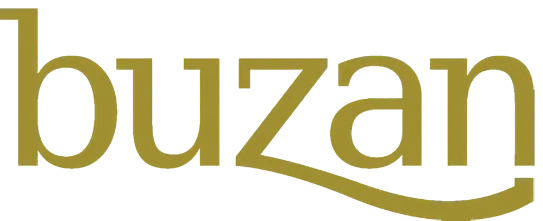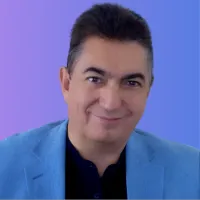Your Knowledge Blog
Global leaders in developing Thinking Skills

Who is the Greatest Thinker?
Introduction
Who is the greatest thinker of all time? Names like Leonardo da Vinci, Aristotle, Queen Elizabeth I, Newton, Galileo, and Socrates might come to mind. Some may argue that contemporary thinkers like Albert Einstein, Maria Montessori, Stephen Hawking, Steve Jobs, Sam Altman, the founder of OpenAI, or Google founders Sergey Brin and Larry Page are equally impactful. Their ideas and contributions have influenced millions and generated substantial wealth. Does this mean modern thinkers are superior to those of the past?
I believe contemporary thinkers have a competitive edge. Modern humans possess a more advanced brain model compared to our ancestors. Scientific research shows that the human brain has evolved over time. Early humans developed larger and more complex brains as they faced new challenges. These brains could process and store more information, aiding social interactions and adaptation to new environments. The modern human brain is the largest and most complex among primates, capable of higher levels of thinking. This adaptability sets us apart in the new world. (Reference: Falk, D., et al. 2012).

"Once you have developed your Brain Capital, you will be ready to reboot your brain with the latest version of your operating software: Thinking 3.0" Dr. Jorge Castaneda
Mental Literacy
Despite our advanced brain model, most people haven't upgraded their "Thinking Skills". To become the productive innovators and problem solvers the world needs, we must enhance our thinking. We need to sharpen our core thinking skills including problem solving, critical thinking, creativity, cognitive flexibility, socio-emotional intelligence, systemic thinking, and meta-cognition (thinking about thinking).
This is especially important in the age of AI, where those who excel in thinking skills will become irreplaceable.
How can we achieve this? By delving deeper into our thought processes and becoming more aware of what and how we think. We can cultivate what the late Tony Buzan termed 'Mental Literacy'—using our brains as they were meant to be used and developed. I call it "Thinking 3.0".
How to develop Mental Literacy?
To cultivate Mental Literacy, we must engage in practices that enhance our cognitive abilities and foster a deeper understanding of our thinking processes.
Key tools and mindsets for developing Mental Literacy:
Mind Mapping: Tony Buzan’s mind mapping technique is an excellent tool for organizing thoughts, generating novel ideas, and making connections between concepts. It involves creating a visual diagram that starts with a central idea and branches out into related topics, emulating the thinking architecture of the human brain.
Critical Thinking: Develop the habit of questioning assumptions, analyzing arguments, and evaluating evidence. Critical thinking helps to enhance problem-solving skills and decision-making.
Lifelong Learning: Commit to continuous education, whether through formal courses, reading books, attending seminars, or exploring new hobbies. Staying curious and open to new knowledge keeps the mind active and engaged.
Meditation and Mindfulness: Practice mindfulness and meditation to improve focus, reduce stress, and enhance awareness of your thought patterns. These practices can lead to greater mental clarity and emotional regulation.
Creative Exercises: Engage in activities that stimulate creativity, such as mind mapping, drawing, writing, or playing musical instruments. Creativity exercises different parts of the brain and encourages innovative thinking.

Example: Leonardo da Vinci and the Power of Curiosity
Leonardo da Vinci exemplified the power of curiosity and its role in continuous learning and improvement. Known as a polymath, his insatiable curiosity spanned various fields, including art, science, engineering, and anatomy.
How da Vinci Used Curiosity:
Interdisciplinary Exploration: Leonardo did not limit himself to one discipline. He studied anatomy to improve his art, dissecting human bodies to understand musculature and movement, which he then meticulously depicted in his paintings.
Observation and Documentation: He constantly observed the world around him, filling notebooks with sketches and notes. His observations ranged from the way water flows to the mechanics of flight in birds, leading to early concepts of hydraulics and aeronautics.
Experimentation: Leonardo's curiosity drove him to experiment continuously. He built prototypes of inventions, such as flying machines and military equipment, many of which were ahead of his time.
Questioning Norms: He questioned existing knowledge and sought to understand the 'why' behind phenomena. This approach led to groundbreaking insights and a deeper comprehension of the natural world.
By emulating Leonardo's curiosity and commitment to lifelong learning, we can cultivate mental literacy and unlock our full intellectual potential. His legacy teaches us that the journey of learning is never-ending and that curiosity is the key to continuous improvement and innovation.
Conclusion
In the end, the question is not about identifying the greatest thinker of all time, but rather about how each of us can become great thinkers ourselves. By developing core thinking skills and adopting a lifelong learning and growth mindset, we unlock our potential to think critically, creatively, and deeply.
Tony Buzan's concept of "Mental Literacy" reminds us that every human being has the capacity for genius if we use our brains as they were meant to be used. By nurturing our curiosity, honing our cognitive abilities, and committing to continuous improvement, we can achieve extraordinary things.
Remember, the journey to becoming a great thinker is within reach for everyone. It starts with a dedication to understanding and expanding our minds, one thought at a time.
A special opportunity
Ready to start your journey towards becoming a great thinker? Enroll in our exclusive "Mind Mapping Foundation Course," taught by the inventors themselves.
For a limited time, we're offering this transformative course for free. Don't miss this opportunity to unlock the full potential of your mind and master the techniques that will elevate your thinking skills.

